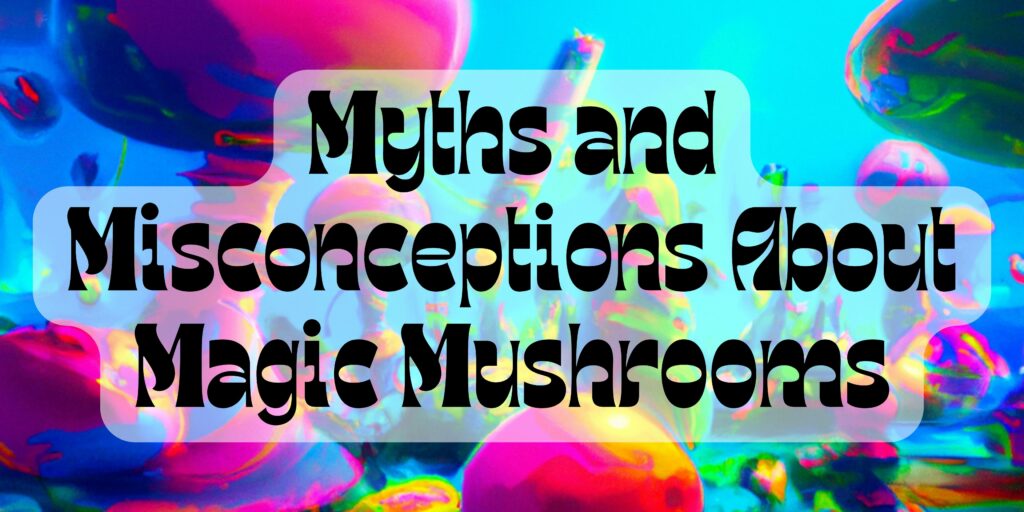Are you feeling overwhelmed or anxious after taking shrooms? Don’t worry, you’re not alone. In this article, we will provide practical tips and techniques to help you come down and sober up from shrooms safely and gently.
The effects of shrooms cannot be reversed instantly, so time and patience are necessary. Hydration and nutrition play a vital role in countering the effects, and relaxation techniques like deep breathing and meditation can aid in the sobering process. Seeking support from trusted friends and family members can also be beneficial.
Furthermore, natural remedies like chamomile tea and medication options like antipsychotics or benzodiazepines can assist in alleviating the hallucinogenic effects if needed. It is important to remember that the effects of shrooms usually persist for 6-8 hours after consumption and that knowing how to sober up is essential.
Key Takeaways:
- Hydration and nutrition are important for countering the effects of shrooms.
- Relaxation techniques like deep breathing and meditation can aid in the sobering process.
- Seek support from trusted friends and family members.
- Consider natural remedies like chamomile tea or medication options like antipsychotics or benzodiazepines if needed.
- Remember that the effects of shrooms usually persist for 6-8 hours.
The Effects of Shrooms on the Mind and Body
Shrooms, also known as magic mushrooms, have profound effects on both the mind and body. The key psychoactive compound found in shrooms is psilocybin, which induces intense hallucinations and altered perceptions in users. When consumed, shrooms can lead to changes in the perception of time and space, causing sensory experiences that are detached from reality. These altered perceptions can result in shifts in mood and thought patterns, creating a unique psychological experience.
Physically, shrooms can cause a range of effects on the body. Users may experience dilated pupils, increased heart rate, and disturbed coordination. Nausea is another common physical side effect that users may encounter while under the influence of shrooms. It is important to note that the physical effects can vary from person to person, depending on factors such as dosage and individual tolerance.
The mind-altering effects of shrooms can be both euphoric and challenging. Users may experience a sense of euphoria, intense visual hallucinations, and profound shifts in perception. However, it is important to be aware that shrooms can also trigger panic reactions and even psychosis in some cases. The intensity and duration of the effects can vary depending on factors such as dosage, set and setting, and individual susceptibility.
Overall, the effects of shrooms on the mind and body are highly subjective and can differ greatly from person to person. It is crucial to approach shroom use with caution and respect, ensuring that you are well-informed and in a safe and supportive environment.
| Physical Effects of Shrooms | Psychological Effects of Shrooms |
|---|---|
|
|
Long-Term Effects of Shroom Use
Prolonged shroom use can have potential long-term effects on an individual’s mental well-being. Regular consumption of psilocybin can affect the brain’s serotonin system, potentially leading to alterations in mood, emotions, and cognitive functions. One recognized long-term effect is the development of Hallucinogen Persisting Perception Disorder (HPPD), which involves recurring visual disturbances even when not under the influence of shrooms. Flashbacks, although relatively rare, can also occur as a reoccurrence of intense sensory perceptions or emotions from past psychedelic experiences. It is important to understand the psychological consequences and potential risks associated with long-term shroom use.
Research suggests that prolonged shroom use can cause changes in brain chemistry, particularly in the serotonin system. Serotonin plays a crucial role in regulating mood, emotions, and cognitive processes, and disruptions in its functioning can have wide-ranging effects on mental well-being. Alterations in serotonin levels may contribute to long-term mood disturbances, such as depression or anxiety disorders, in individuals who use shrooms regularly.
Another long-term effect of shroom use is the development of Hallucinogen Persisting Perception Disorder (HPPD). This condition involves the recurrence of visual disturbances, such as seeing geometric patterns or flashes of color, even when a person is not under the influence of shrooms. These visual disturbances can be distressing and interfere with daily life, and their exact cause is not yet fully understood. It is important to note that not everyone who uses shrooms will develop HPPD, but individuals who have had high-dose or frequent psychedelic experiences may be at a higher risk.
Furthermore, flashbacks can occur as a result of long-term shroom use. Flashbacks are sudden and intense reoccurrences of sensory perceptions or emotions from past psychedelic experiences. These episodes can be triggered by various factors, such as stress, fatigue, or even exposure to certain stimuli reminiscent of the initial psychedelic experience. While flashbacks are relatively rare, they can be disruptive and distressing for individuals who experience them. It is important to be aware of the potential risks and consequences of long-term shroom use and to seek support if needed.
Table: Long-Term Effects of Shroom Use
| Effect | Description |
|---|---|
| Hallucinogen Persisting Perception Disorder (HPPD) | Recurring visual disturbances, such as seeing geometric patterns or flashes of color, even when not under the influence of shrooms. |
| Mood and Emotion Dysregulation | Alterations in mood, emotions, and overall emotional well-being due to changes in brain chemistry and serotonin levels. |
| Flashbacks | Sudden and intense reoccurrences of sensory perceptions or emotions from past psychedelic experiences. |
Harm Reduction Strategies for Shroom Use
When it comes to shroom use, harm reduction strategies play a crucial role in ensuring a safe and responsible experience. By being informed and taking necessary precautions, you can minimize potential risks and create a positive environment for your psychedelic journey. Here are some key harm reduction strategies to consider:
Responsible Shroom Use
Responsible shroom use starts with understanding the effects and potential risks associated with magic mushrooms. Educate yourself about dosage guidelines, recommended settings, and the importance of having a trusted trip sitter. Start with a low dose and gradually increase if needed, allowing yourself to acclimate to the effects.
Informed Decision Making
Make informed decisions by researching the specific strain of mushrooms you plan to consume. Different strains have varying levels of potency and effects. Additionally, be aware of any contraindications or potential interactions with medications you may be taking. Consulting with a healthcare professional can provide valuable insights and ensure your safety.
Set and Setting
Creating an optimal set and setting is crucial for a positive shroom experience. Set refers to your mindset and emotional state, while setting refers to your physical surroundings. Choose a comfortable and familiar environment where you feel safe and secure. Surround yourself with supportive friends who are experienced with psychedelics or have a sober sitter present to guide you through the experience.
Proper Dosage
Understanding the appropriate dosage is essential to avoid overwhelming experiences or potential risks. Different individuals may have varying levels of sensitivity to psilocybin, so it’s important to start with a low dose. Gradually increase the dosage as you become more experienced and comfortable with the effects. Remember, patience is key.
By following these harm reduction strategies, you can minimize potential risks and ensure a safe and enjoyable shroom experience. Remember, your well-being and safety should always be the top priority when engaging in psychedelic journeys. Stay informed, be responsible, and create a supportive environment for yourself and those around you.
Conclusion
Summing up, understanding how to sober up from shrooms and being aware of the effects of shroom use is crucial for a safe and positive experience. By following the provided tips and techniques, you can navigate the effects of shrooms more easily and ensure a smoother transition back to reality.
Remember that time, patience, hydration, nutrition, relaxation techniques, and support are key in managing the effects of shrooms. It is also important to remain mindful of the potential long-term consequences and to practice harm reduction strategies when using shrooms.
Always prioritize your safety and well-being when embarking on psychedelic experiences involving magic mushrooms. By staying informed, making responsible choices, and taking necessary precautions, you can create a more enjoyable and mindful journey.
FAQ
Are there any natural remedies that can help in sobering up from shrooms?
Yes, chamomile tea is known for its calming properties and can aid in reducing the effects of shrooms. It is recommended to drink a cup of chamomile tea to promote relaxation and a smoother transition back to reality.
Can medication be used to alleviate the hallucinogenic effects of shrooms?
In some cases, antipsychotics or benzodiazepines may be prescribed by a healthcare professional to assist in reducing the hallucinogenic effects of shrooms. It is important to consult with a medical professional before considering medication options.
How long do the effects of shrooms typically last?
The effects of shrooms usually persist for 6-8 hours after consumption. It is important to be prepared for a longer duration of altered perception and to allow yourself enough time to fully come down from the trip.
Is it normal to feel overwhelmed or anxious after taking shrooms?
Yes, it is common to feel overwhelmed or anxious after consuming shrooms. The intense hallucinogenic effects can sometimes trigger anxiety or panic reactions. Remember to practice relaxation techniques, seek support from trusted individuals, and give yourself time to process the experience.
Can shroom use have long-term effects on mental well-being?
Yes, prolonged shroom use can potentially have long-term effects on an individual’s mental well-being. Regular consumption of psilocybin can affect the brain’s serotonin system, leading to changes in mood, emotions, and cognitive functions. It is important to be aware of the potential risks associated with long-term shroom use.




